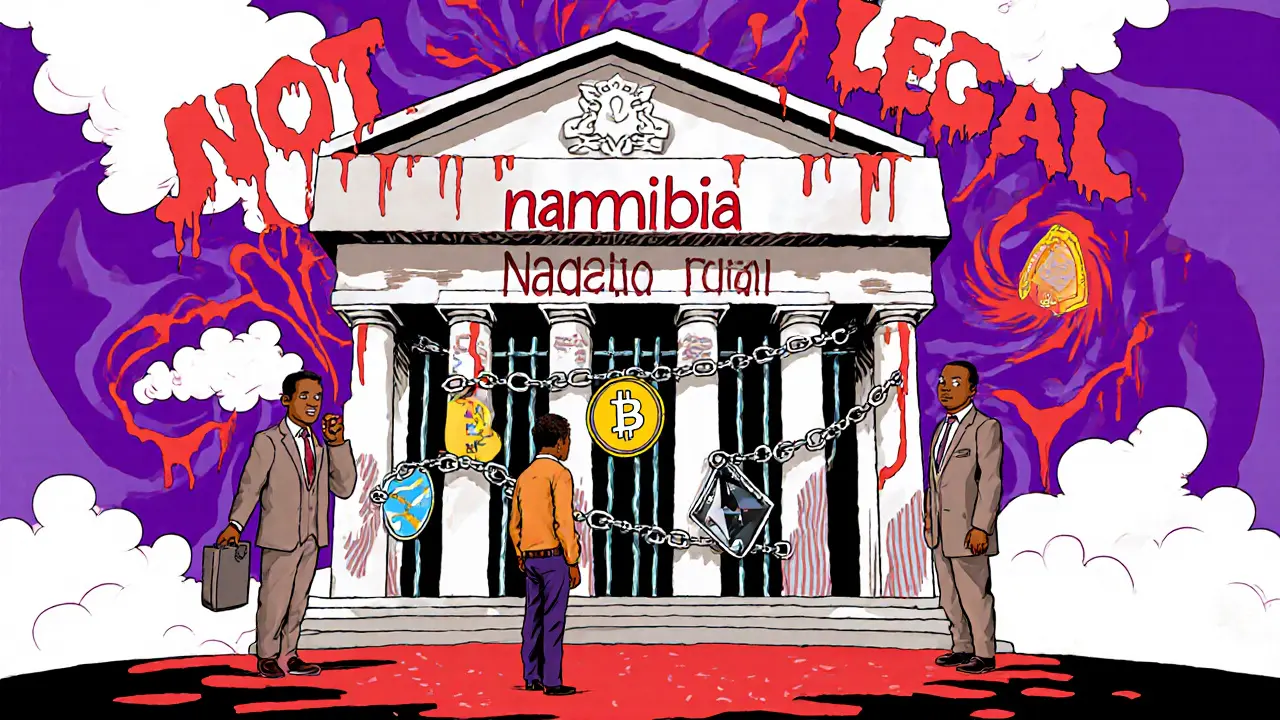Virtual Assets Act Namibia: What It Means for Crypto Users and Businesses
When Virtual Assets Act Namibia, a 2023 law that formally defines and regulates digital assets like cryptocurrencies and NFTs under Namibian financial law. Also known as the Virtual Assets Regulatory Framework, it marks the first time Namibia has created a legal structure for crypto assets instead of ignoring them. Before this law, crypto users operated in a gray zone—no official ban, but no official protection either. Now, businesses handling virtual assets must register with the Namibian Financial Intelligence Centre, follow AML rules, and report suspicious activity. It’s not about banning crypto—it’s about bringing it into the light.
This law doesn’t just target exchanges. It affects anyone who provides services involving virtual assets: wallet providers, crypto ATMs, even individuals running staking pools if they’re doing it commercially. The Financial Intelligence Centre, Namibia’s primary agency for monitoring financial crime and enforcing anti-money laundering rules is now the gatekeeper. They require proof of identity, transaction logs, and ongoing compliance checks. For users, this means more secure platforms—but also more paperwork. Unlike countries that outright ban crypto, Namibia chose to regulate. That’s a big deal in Africa, where most nations either ignore crypto or shut it down.
The Virtual Assets Act, a regulatory framework that treats digital assets as financial instruments rather than currencies. Also known as Namibia’s crypto licensing regime, it aligns loosely with international standards like FATF guidelines, but it’s simpler and less bureaucratic than the EU’s MiCA or the U.S.’s patchwork of state laws. It doesn’t touch personal use—buying Bitcoin for yourself, holding it in a wallet, or sending it to a friend is still fine. But if you’re running a service that touches crypto, you’re now under the law. That’s why you’ll see local exchanges shutting down or relocating—they can’t meet the cost of compliance. Meanwhile, those who do comply are building trust with customers who want to avoid scams.
What’s missing? Tax guidance. The law doesn’t say how crypto gains are taxed—yet. That’s still up to the Namibian Revenue Authority, and no official rules have been published. Also, there’s no clear path for foreign crypto platforms to operate legally in Namibia. So if you’re using Binance or Kraken from Windhoek, you’re still in a legal gray area. The law is a start, not a finish.
Below, you’ll find real-world breakdowns of how this law impacts users, what businesses are doing to adapt, and how Namibia compares to other African nations trying to get crypto right. No theory. No hype. Just what’s actually happening on the ground.
Namibia Banking Restrictions on Crypto Transactions: What You Need to Know in 2025
Namibia’s crypto rules are confusing: businesses can get provisional licenses, but individuals can’t legally trade. Banks freeze accounts, the Travel Rule tracks every big transaction, and the public remains locked out. Here’s what’s really happening in 2025.
